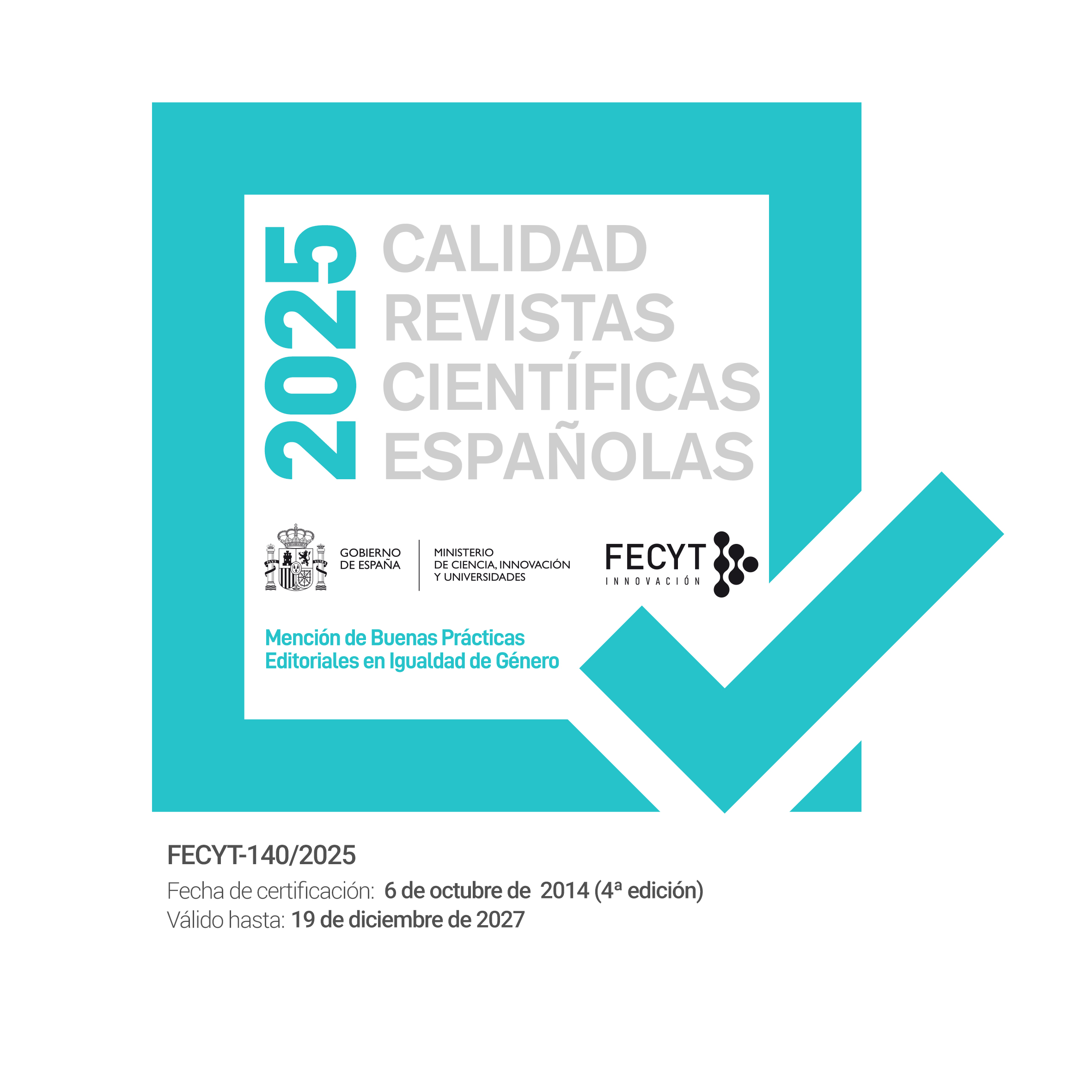EL META-ANÁLISIS: UNA METODOLOGÍA PARA LA INVESTIGACIÓN EN EDUCACIÓN
DOI:
https://doi.org/10.5944/educxx1.19030Palabras clave:
Meta-análisis, investigación en educación, revisión sistemática.Resumen
Se presenta la metodología del meta-análisis como herramienta para la investigación educativa. Un meta-análisis implica una síntesis cuantitativa de la evidencia acumulada sobre una pregunta de investigación previamente definida. La respuesta se basará en la información contenida en los estudios previamente publicados (estudios primarios). Las principales características del meta-análisis son la precisión, la objetividad y la replicabilidad. Su aplicación permite obtener una estimación combinada del tamaño del efecto. También permite evaluar la heterogeneidad observada en un campo de estudio. Ello permite a su vez formular nuevas hipótesis que incorporan el papel de variables que no se habían tenido en cuenta hasta el momento. Un meta-análisis comienza con la formulación del problema. A continuación se lleva a cabo la localización de estudios relacionados con ella. En la fase de codificación se caracterizan los trabajos recogidos en la fase anterior. Finalmente, un análisis estadístico conduce a los resultados, que se presentarán en una publicación que asegure la replicabilidad del estudio. Entre las herramientas gráficas asociadas al meta-análisis destaca el llamado Forest Plot, que permite presentar de forma conjunta las estimaciones puntuales y de intervalo de los estudios seleccionados para el meta-análisis. Aunque el potencial del meta-análisis es evidente, también presenta algunas debilidades derivadas de la falta de acotación de los constructos estudiados o de la existencia de un sesgo en la publicación de resultados, sobre todo de los estadísticamente significativos. La valoración general que se hace del papel del meta-análisis en la investigación en educación es positiva aunque también se señalan áreas de mejora. Se indican algunos recursos, tanto bibliográficos como de software, que permiten a los investigadores interesados adentrarse en esta herramienta tan útil en el campo de la investigación educativa.Descargas
Citas
Ahn, S., Ames, A. & Myers, N. (2012). A Review of Meta-Analyses in Education: Methodological Strengths and Weaknesses. Review of Educational Research, 82(4), 436-476.
American Psychological Association (2008). Reporting standards for research in psychology: Why do we need them? What might them be? American Psychologist, 63, 839-851.
American Psychological Association (2010). Publication manual of the American Psychological Association (6th ed.). Washington, DC: American Psychological Association.
Anafarta A. & Irmak, S. (2014). A Reliability Generalization Study of The Service Quality Scale (Servqual) in The Clute Institute International Business Conference, München, Alemania, 534-541.
Baker, M. (2016). Is there a reproducibility crisis? Nature, 533(7604), 452-454.
Banks, G., Kepes, S. & Banks, K. (2012). Publication Bias: The Antagonist of Meta-Analytic Reviews and Effective Policymaking. Educational Evaluation and Policy Analysis, 34(3), 259-277.
Becker, B. J. & Schram, C. M. (1994). Examining explanatory models through research synthesis. En H. Cooper & L. V. Hedges (Eds.). The handbook of research synthesis (pp. 357-381). Nueva York: Russell Sage Foundation.
Biggs J., Kember D. & Leung D. Y. P. (2001). The revised two-factor Study
Process Questionnaire: R-SPQ-2F. British Journal of Educational Psychology, 71(1), 133-149.
Blázquez, D., Botella, J. & Suero, M. (2017). The debate on the ego-depletion effect: Evidence from metaanalysis with the p-uniform method. Frontiers in Psychology, 8, 197.
Borenstein, M., Hedges, L. V., Higgins, J. P. T. & Rothstein, H. R. (2009). Introduction to meta-analysis. Chichester, UK: John Wiley and sons.
Borenstein, M., Hedges, L. V., Higgins, J. P. T. & Rothstein, H. R. (2010). A basic introduction to fixed-effects and random-effects models for meta-analysis. Research Synthesis Methods, 1, 97-111.
Borenstein, M., Hedges, L. V., Higgins, J. P. T. & Rothstein, H. R. (2013). Comprehensive Meta-analysis Version 3.0. Biostat Inc. Botella, J. & Gambara, H. (2006). Doing and reporting a meta-analysis. International
Journal of Clinical and Health Psychology, 6, 425-440.
Botella, J. y Huang, H. (2012). Procedimientos para realizar meta-análisis de la precisión de instrumentos de clasificación binaria. Psicothema, 24(1), 133-141.
Botella, J. y Sánchez-Meca, J. (2015). Meta-análisis en Ciencias Sociales y de la Salud. Madrid: Editorial Síntesis.
Botella, J., Suero, M. & Gambara, H. (2010). Psychometric inferences from
a meta-analysis of reliability and internal consistency coefficients. Psychological Methods, 15, 386-397.
Cheung, M. W. L. (2015). Meta-analysis: A structural equation modeling approach. Chichester, Reino Unido: John Wiley & Sons.
Clarke, M. (2009). Reporting format. En H. Cooper, L. V. Hedges y J. C. Valentine (Eds.)(2009), The handbook of research synthesis and meta-analysis 2.ª ed. (pp. 521-534). Nueva York: Russell Sage Foundation.
Cooper, H., Hedges, L. V. & Valentine, J. C. (2009). The Handbook of Research Synthesis and Meta-analysis. Nueva York: Russell Sage Foundation.
Faul, F., Erdfelder, E., Lang, A. G. y Buchner, A. (2007). G* Power 3: A flexible statistical power analysis program for the social, behavioral, and biomedical sciences. Behavior research methods, 39(2), 175-191.
Gini, G. & Pozzoli, T. (2013). Measuring self-serving cognitive distortions:
A meta-analysis of the psychometric properties of the How I Think cuestionnaire (HIT). European Journal of Developmental Psychology, 10(4), 510-517.
Glass, G. V. (1976). Primary, secondary, and meta-analysis of research. Educational Researcher, 5, 3-8.
Glass, G. V. (2016). One Hundred Years of Research Prudent Aspirations. Educational Researcher, 45(2), 69-72.
Glass, G. V. y Smith, M. K. (1979). Metaanalysis of research on class size and achievement. Educational Evaluation and Policy Analysis, 1, 2-16.
Hattie, J. (2009). Visible learning. A synthesis of over 800 meta-analyses relating to achievement. London: Routledge.
Hedges, L. V. & Olkin, I. (1985). Statistical methods for meta-analysis. Orlando, FL: Academic Press.
Henson, R. K., Kogan, L. R., & Vacha-Haase, T. (2001). A reliability generalization study of the teacher efficacy scale and related instruments. Educational and Psychological Measurement, 61(3), 404-420.
Herrington, H. M., Smith, T. B., Feinauer, E. & Griner, D. (2016). Reliability generalization of the Multigroup Ethnic Identity Measure-Revised (MEIMR). Journal of counseling psychology, 63(5), 586-593.
Higgins, J. P. & Welton, N. J. (2015). Network meta-analysis: a norm for
comparative effectiveness? The Lancet, 386(9994), 628-630.
Huedo-Medina, T., Sánchez-Meca, J., Marín-Martínez, F. & Botella, J. (2006). Assessing heterogeneity in meta-analysis: Q statistics or I2 index?
Psychological Methods, 11, 193-206.
Klassen, R. M. & Tze, V. M. (2014). Teachers’ self-efficacy, personality, and teaching effectiveness: A meta-analysis. Educational Research Review, 12, 59-76.
Lipsey, M. W. (1994). Identifying potentially interesting variables and analysis opportunities. En H. M. Cooper & L. V. Hedges (Eds.), The handbook of research synthesis (pp. 111-123). New York: Sage Foundation.
Lipsey, M. W. y Wilson, D. B. (2001). Practical meta-analysis. Thousand
oaks, CA: Sage Pub.
Neyeloff, J. L., Fuchs, S. C., & Moreira, L. B. (2012). Meta-analyses and Forest plots using a microsoft excel spreadsheet: step-by-step guide focusing on descriptive data analysis. BMC research notes, 5(1), 1.
Pashler, H. y Wagenmakers, E. J. (2012). Editors’ introduction to the special section on replicability in psychological science: A crisis of confidence? Perspectives on Psychological Science, 7(6), 528-530.
Patall, E. A., Cooper, H. y Robinson, J. C. (2008). Parent involvement in homework: A research synthesis. Review of educational research, 78(4), 1039-1101.
Pigott, T., Valentine, J., Polanin J., Williams, T. y Canada, D. (2013).
Outcome-Reporting Bias in Education Research. Educational Researcher,
(2), 424-432.
Polanin, J. R., Hennessy, E. A., & Tanner-Smith, E. E. (2016). A Review of
Meta-Analysis Packages. R Journal of Educational and Behavioral Statistics.
Prepublished November 30, 2016. Doi 1076998616674315.
R Development Core Team (2010). R: A Language and Environment for Statistical Computing. R Foundation for Statistical Computing, Vienna, Austria. ISBN 3-900051-07-0. URL http://www.R-project.org/.
Reschly, A. L., Busch, T. W., Betts, J., Deno, S. L. & Long, J. D. (2009). Curriculum-based measurement oral reading as an indicator of reading
achievement: A meta-analysis of the correlational evidence. Journal of School Psychology, 47(6), 427-469.
Rosenthal, R. (1995). Writing metaanalytic reviews. Psychological Bulletin,
, 183-192.
Rothstein, H. R., Sutton, A. J. y Borenstein, M. (2005). Publication Bias in
Meta-Analysis. Chichester: John Wiley & Sons.
Sánchez-Meca, J. y Botella, J. (2010). Revisiones sistemáticas y meta-análisis: herramientas para la práctica profesional. Papeles del Psicólogo, 31(1), 7-17.
Sirin, S. R. (2005). Socioeconomic status and academic achievement: A metaanalytic review of research. Review of educational research, 75(3), 417-453.
Smith, M. y Glass, G. V. (1977). Metaanalysis of psychotherapy outcome
studies. American Psychologist, 32, 752-760.
Stanley, T. D. y Doucouliagos, H. (2014). Meta-regression approximations to reduce publication selection bias. Research Synthesis Methods, 5(1), 60-78.
Steffgen, G., Recchia, S. & Viechtbauer, W. (2013). The link between school climate and violence in school: A metaanalytic review. Aggression and Violent Behavior, 18(2), 300-309.
Schwinger, M., Wirthwein, L., Lemmer, G. & Steinmayr, R. (2014). Academic Self-Handicapping and Achievement: A Meta-Analysis. Journal of Educational Psychology, 106(3), 744-761.
Vacha-Haase, T. (1998). Reliability generalization: Exploring variance in measurement error affecting score reliability across studies. Educational and Psychological Measurement, 58(1), 6-20.
Van Assen, M. A., Van Aert, R. & Wicherts, J. M. (2015). Meta-analysis using effect size distributions of only statistically significant studies. Psychological methods, 20(3), 293.
Viechtbauer, W. (2010). Conducting meta-analyses in R with the metafor
package. Journal of Statistical Software, 36(3), 1-48.
Zheng, B., Warschauer, M., Lin, C. H. & Chang, C. (2016). Learning in One-to-One Laptop Environments A Meta-Analysis and Research Synthesis. Review of Educational Research, 86(4), 1052-1084.
Descargas
Cómo citar
Número
Sección
Licencia
La revista Educación XX1 se publica bajo licencia Creative Commons Reconocimiento-NoComerciaL 4.0 (CC BY-NC 4.0). Se permite la generación de obras derivadas siempre que no se haga un uso comercial. Tampoco se puede utilizar la obra original con finalidades comerciales.










